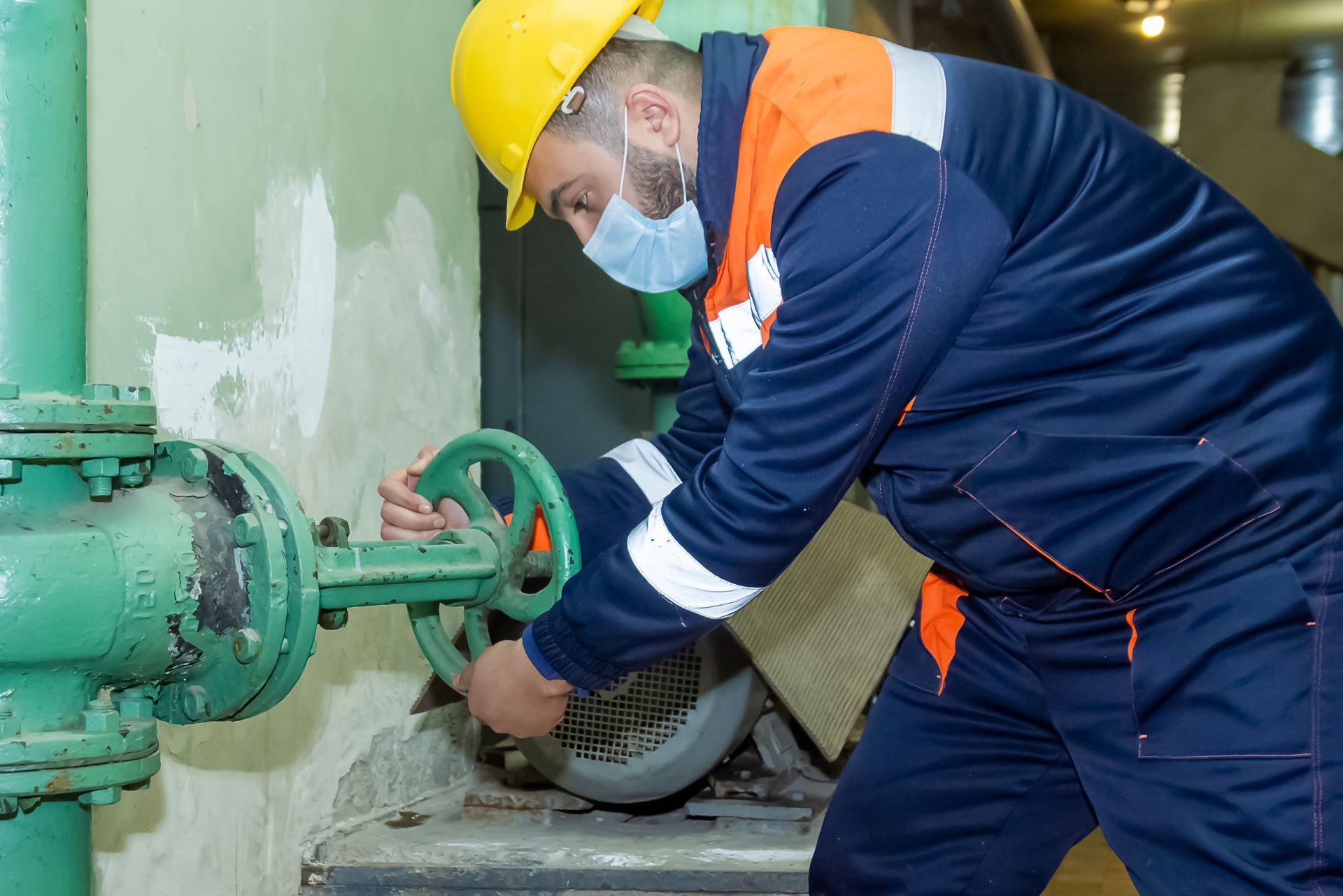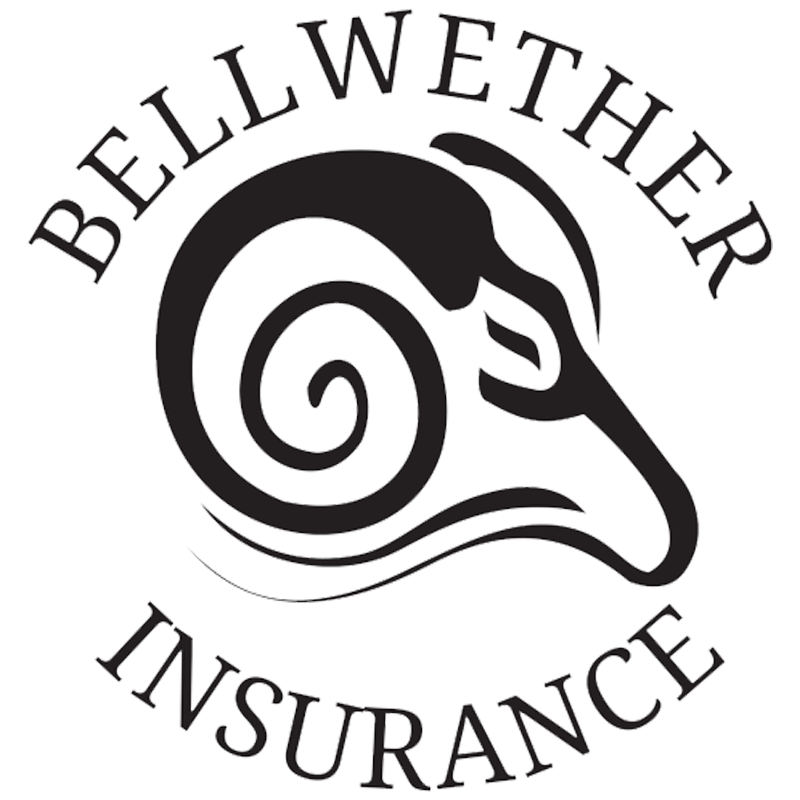Ohio Industrial Plumber Insurance

Index
General Liability Insurance: The Foundation of Plumbing Coverage
Workers’ Compensation: Protecting Your Team on the Job
Common Risks and Exposures for Ohio Plumbing Contractors
Leak Detection Specialists: A Critical Role in Ohio Plumbing
Comprehensive Insurance Packages: What Do They Include and Cost?
Environmental and Directors & Officers Liability: Emerging Concerns
Insurance Company Structures and What They Mean for Ohio Plumbers
Side-by-Side Comparison: General Liability vs. Comprehensive Packages
What Ohio Industrial Plumbers Should Prioritize
Contact Us
Phone
216-600-2828
Location
100 N. Center Street PO Box 627 LaGrange, OH 44050
If a single leak goes unnoticed in an
industrial plumbing project, the resulting damage can spiral into costly repairs and liability claims. For plumbers working in Ohio’s industrial sector, insurance is not just a safety net-it’s a business essential. Understanding the right coverage types and what they typically cost can save your company from unexpected financial strain.
General Liability Insurance: The Foundation of Plumbing Coverage
General liability insurance protects plumbing contractors against claims of property damage or bodily injury caused during work. In Ohio, plumbing businesses typically pay around $115 per month for this coverage, which totals about $1,378 annually. This cost reflects the average risk profile for plumbers operating in the state.
Industrial plumbers face a variety of risks, from accidental water damage to client property to injuries caused by faulty installations. Having general liability insurance means these claims can be handled without draining your company’s resources. It also reassures clients that your business is responsible and prepared for unforeseen incidents.
Moreover, the importance of general liability insurance extends beyond mere protection against claims. It plays a crucial role in enhancing a plumbing contractor's credibility. Many clients, especially larger corporations and government entities, require proof of insurance before awarding contracts. This requirement not only protects them but also serves as a testament to your professionalism and commitment to industry standards. With the right coverage, plumbing contractors can confidently bid on larger projects, knowing they are safeguarded against potential liabilities.
In addition to general liability insurance, plumbing contractors may also consider supplementary coverages such as professional liability insurance, which protects against claims of negligence or failure to perform professional duties. This is particularly relevant for those who engage in design or consulting work, where the stakes can be higher. By understanding and investing in a comprehensive insurance portfolio, plumbing professionals can ensure they are fully protected against the myriad of risks they face in their daily operations.
For those interested in the specifics, more details about general liability premiums for Ohio plumbers can be found at
Insureon.com.

Workers’ Compensation: Protecting Your Team on the Job
Plumbing work is physically demanding and sometimes dangerous. Injuries on the job are not uncommon, making workers’ compensation insurance critical. Ohio charges plumbers $2.14 per $100 of payroll for this coverage. This rate ensures that injured employees receive medical care and wage replacement without burdening the employer with direct costs. The peace of mind that comes with knowing your team is covered can foster a more productive work environment, allowing plumbers to focus on their tasks rather than worrying about potential accidents.
On-the-job injuries can range from slips and falls to equipment-related accidents. Workers’ compensation also protects your business from lawsuits related to workplace injuries. For industrial plumbers managing crews, this coverage is a must-have to maintain workforce safety and legal compliance. Furthermore, understanding the nuances of workers’ compensation can help employers implement better safety protocols and training programs, ultimately reducing the likelihood of injuries. Regular safety meetings and workshops can reinforce best practices and ensure that all team members are aware of potential hazards in their work environment.
In addition to the financial protection offered by workers’ compensation, it also plays a crucial role in fostering a culture of safety within the workplace. When employees know that their well-being is prioritized, they are more likely to report unsafe conditions and participate in safety training. This proactive approach not only benefits the workers but also enhances the overall reputation of the plumbing business. A company known for its commitment to safety can attract top talent and retain skilled workers, which is essential in a competitive industry.
Learn more about Ohio’s workers’ compensation rates for plumbers at ContractorNerd.com.
Common Risks and Exposures for Ohio Plumbing Contractors
Industrial plumbing contractors face unique exposures beyond typical business risks. Property damage is a frequent concern, whether from accidental pipe bursts or water leaks affecting client facilities. Equipment theft is another risk, especially with expensive tools and machinery often left on-site. The potential for equipment damage or loss not only impacts the financial bottom line but can also lead to project delays, which in turn affects client relationships and future business opportunities.
Additionally, workers’ compensation claims due to injuries remain a significant exposure. Plumbing contractors must also consider environmental risks, particularly when working on large-scale projects that could impact water quality or soil contamination. These environmental concerns can lead to regulatory scrutiny and potential fines, making it essential for contractors to stay informed about local laws and best practices in waste disposal and site management.
Understanding these risks helps in tailoring insurance packages to cover the most likely and costly exposures. This proactive approach not only protects the business but also enhances its reputation in the industry. Moreover, investing in safety training programs for employees can significantly reduce the likelihood of accidents, thereby lowering insurance premiums over time. More information on common plumbing contractor risks is available at
CoverLink.com.
Leak Detection Specialists: A Critical Role in Ohio Plumbing
Leak detection is more than a specialty-it is a preventative service that can save homeowners and businesses thousands of dollars. Early detection of leaks can prevent up to 80% of water damage in residential properties. For industrial plumbers offering leak detection, this service adds a layer of value and risk management. Utilizing advanced technology such as acoustic sensors and infrared thermography, leak detection specialists can pinpoint issues without invasive procedures, saving time and minimizing disruption to the property. This not only enhances the efficiency of plumbing systems but also extends their lifespan, ensuring that clients receive the best return on their investment.
Insurance for leak detection specialists should reflect the importance of this work. Coverage must protect against potential claims arising from missed leaks or damage caused during detection processes. Given the high stakes, specialized insurance tailored to leak detection work is advisable. Additionally, as the demand for eco-friendly and sustainable plumbing solutions rises, leak detection specialists are increasingly required to stay updated on the latest green technologies. This not only involves understanding how to detect leaks in modern plumbing systems but also how to recommend solutions that conserve water and reduce environmental impact.
Explore insurance options for Ohio leak detection specialists at
BellwetherInsurance.com. Furthermore, as the landscape of plumbing evolves, ongoing training and certification in leak detection methods are becoming essential. This ensures that specialists are equipped with the knowledge to tackle new challenges, such as detecting leaks in complex commercial systems or older residential properties, where traditional methods may fall short. By investing in their skills and knowledge, leak detection specialists not only enhance their service offerings but also contribute to the overall health and safety of the plumbing infrastructure in Ohio.

Comprehensive Insurance Packages: What Do They Include and Cost?
Many industrial plumbing businesses opt for comprehensive insurance packages that bundle multiple coverages. These packages often include general liability, workers’ compensation, commercial auto, equipment coverage, and sometimes pollution liability. General liability protects against claims of bodily injury or property damage, which can be particularly crucial in the plumbing industry where accidents can occur on job sites. Workers’ compensation, on the other hand, ensures that employees are covered in the event of work-related injuries, providing them with medical benefits and wage replacement, which is essential for maintaining a satisfied and healthy workforce.
In Ohio, such comprehensive packages typically cost around $500 per month or $6,000 annually. While this is a significant investment, it offers broader protection and simplifies policy management. For industrial plumbers handling large projects, this kind of coverage can be a smart choice. Additionally, many insurance providers offer customizable options, allowing businesses to tailor their policies to fit specific needs, such as adding coverage for specialized equipment or including higher limits for liability coverage. This flexibility can be invaluable for plumbing companies that deal with unique challenges and risks on a daily basis.
More insights into plumbing insurance packages and pricing can be found at AllenThomasGroup.com. Understanding the nuances of these packages is crucial for business owners, as it not only helps in budgeting for insurance costs but also ensures that they are adequately protected against potential financial losses. Furthermore, engaging with an insurance broker who specializes in the plumbing industry can provide additional guidance and help navigate the complexities of policy options, ensuring that businesses make informed decisions that best suit their operational needs.
Environmental and Directors & Officers Liability: Emerging Concerns
Environmental risks are gaining attention in construction and industrial sectors. Pollution liability coverage increased by 11.2% in 2025 as firms prioritize protection against environmental damage on large projects. Industrial plumbers working on sites with potential contamination risks should consider this coverage. The growing awareness of environmental sustainability has led many companies to adopt more stringent practices, but the potential for unforeseen liabilities remains a significant concern. As regulations tighten and public scrutiny intensifies, firms that neglect to secure adequate environmental liability coverage may find themselves facing hefty fines and reputational damage, which could have long-lasting implications for their operations.
Additionally, Directors & Officers (D&O) liability insurance is becoming more relevant. The average D&O liability settlement in construction hit $118,500 in 2025. This coverage protects company leaders from claims related to management decisions, which can be costly and complex. The construction industry, in particular, is fraught with challenges that can lead to disputes, including project delays, budget overruns, and safety violations. As a result, D&O insurance is not just a safety net; it is a critical tool for attracting and retaining top executive talent who want to mitigate their personal risk. Furthermore, the rise of shareholder activism and increased litigation against corporate boards means that having robust D&O coverage is not merely advisable but essential for protecting the interests of both the company and its leadership.
These coverages are not always included in basic insurance packages but are worth discussing with your broker to ensure full protection. Many brokers can provide tailored solutions that address the unique risks associated with specific projects or operational practices, allowing businesses to navigate the complexities of environmental and managerial liabilities more effectively. As the landscape of risk continues to evolve, staying informed and proactive about these insurance options can safeguard not only a company's financial health but also its long-term viability in an increasingly competitive market.
Insurance Company Structures and What They Mean for Ohio Plumbers
Understanding how insurance providers operate can influence your coverage options. About 68% of brokers’ books consist of companies without captives or alternative risk structures. Single-parent captives make up 29%, offering more tailored risk management solutions.
For Ohio industrial plumbers, working with brokers familiar with these structures can help in securing policies that balance cost and coverage effectively. Captive insurance arrangements might provide savings or specialized coverage for businesses with unique risk profiles.
More on insurance company types and their impact on construction insurance is available at
CoinLaw.io.
Side-by-Side Comparison: General Liability vs. Comprehensive Packages
| Coverage Type | Average Monthly Cost (Ohio) | Key Coverages Included | Best For |
|---|---|---|---|
| General Liability Insurance | $115 | Property damage, bodily injury, legal defense | Small to mid-sized plumbing businesses with limited risk exposure |
| Comprehensive Insurance Package | $500 | General liability, workers’ comp, commercial auto, equipment, pollution liability | Larger industrial plumbing firms or those with diverse operations |
What Ohio Industrial Plumbers Should Prioritize
Insurance is not one-size-fits-all. Industrial plumbers in Ohio should focus on these priorities:
- General liability to cover day-to-day risks of property damage and injuries.
- Workers’ compensation to protect employees and comply with state laws.
- Equipment and tools coverage to safeguard valuable assets on job sites.
- Pollution liability if working on projects with environmental exposure.
- Leak detection specialist insurance if offering this service to reduce water damage risks.
Balancing coverage with cost is key. While general liability insurance is more affordable, comprehensive packages provide broader protection that may save money in the long run by preventing gaps.
Frequently Asked Questions
Q: How much does general liability insurance cost for plumbers in Ohio?
A: On average, it costs about $115 per month or $1,378 annually.
Q: Is workers’ compensation insurance mandatory for Ohio plumbing businesses?
A: Yes. Ohio requires plumbers to carry workers’ compensation insurance, with rates around $2.14 per $100 of payroll.
Q: What risks does pollution liability insurance cover for plumbers?
A: It protects against claims related to environmental damage, such as contamination from plumbing projects.
Q: Can leak detection specialists get specialized insurance in Ohio?
A: Yes. Insurance tailored for leak detection work helps cover risks specific to this service.
Q: Are comprehensive insurance packages worth the higher cost?
A: For larger firms or those with diverse operations, comprehensive packages offer broader protection and can reduce gaps in coverage.
Q: What is the average settlement for Directors & Officers liability claims in construction?
A: The average settlement reached $118,500 in 2025.
Before You Go
Choosing the right insurance coverage for an industrial plumbing business in Ohio means weighing risks, costs, and the scope of your operations. General liability and workers’ compensation form the core, but specialized coverages like pollution liability and leak detection insurance can safeguard against emerging risks. Consulting with knowledgeable brokers who understand Ohio’s market and insurance company structures can help tailor a policy that fits your business needs without overspending.
Investing in the right insurance today can protect your business from costly claims tomorrow. Stay informed, stay covered, and keep your industrial plumbing operations running smoothly.


